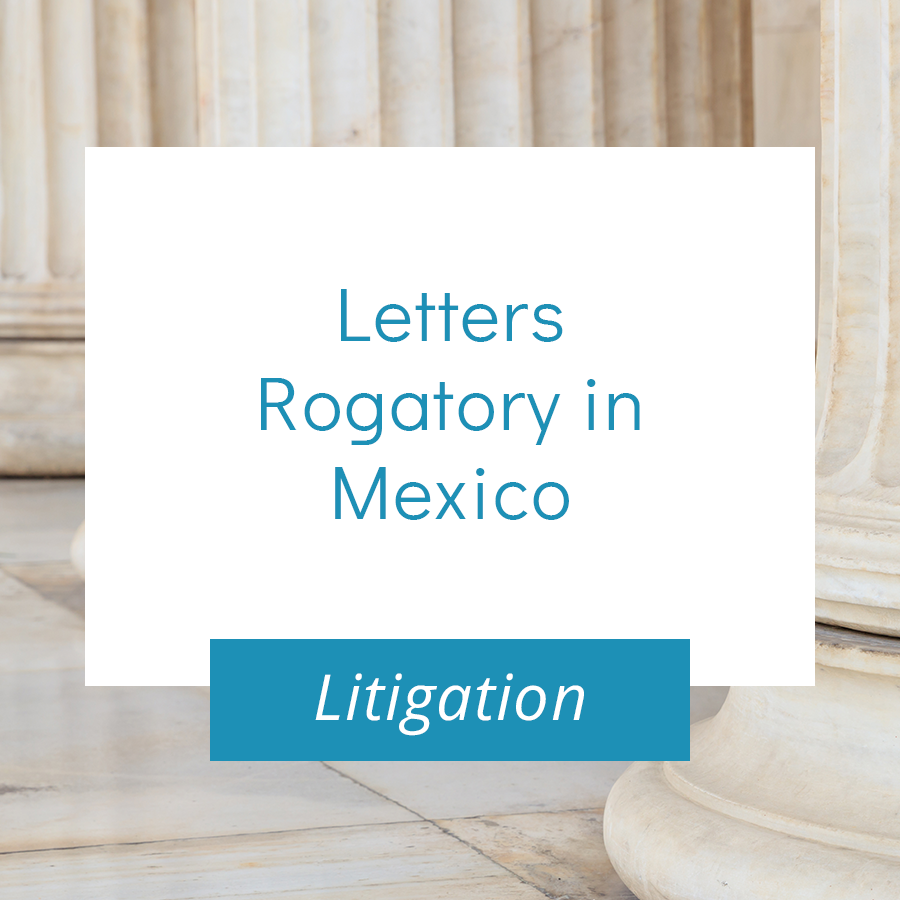Finest Practices for Composing Efficient Letters Rogatory for Legal Issues
Finest Practices for Composing Efficient Letters Rogatory for Legal Issues
Blog Article
Letters Rogatory Explained: Facilitating Legal Teamwork In Between Countries

Definition of Letters Rogatory
Letters rogatory are formal demands made by a court in one jurisdiction to a court in one more jurisdiction, seeking support in getting proof or testament for a legal action. This step-by-step mechanism is necessary in the context of worldwide regulation, where legal systems may vary, and cross-border collaboration is needed. Letters rogatory facilitate the celebration of details that may be important for adjudicating cases, specifically in circumstances entailing complex global concerns.
Normally, these requests arise in civil, criminal, or management issues where a party calls for proof that lies outside the territory of the requesting court. The letters work as a way to guarantee that the principles of due process are maintained, making it possible for courts to accessibility proof that could or else remain inaccessible due to lawful or geographical obstacles.
The usage of letters rogatory is regulated by international treaties, bilateral agreements, or domestic laws, which delineate the procedures and commitments of the courts entailed. It is necessary to keep in mind that the execution of such demands is not assured; they depend on the legislations and methods of the jurisdiction getting the letter. Thus, letters rogatory are a crucial device for fostering legal collaboration and ensuring justice throughout borders.
The Process of Issuing Letters Rogatory
Issuing letters rogatory entails an organized procedure that makes certain conformity with both worldwide and domestic legal criteria. Initially, the asking for celebration, commonly a court or lawful authority, composes a formal request outlining the nature of the support sought, the evidence or details needed, and the legal basis for the demand. This document must be precise to promote understanding by the international jurisdiction.

The following action includes transferring the letters rogatory to the assigned foreign authority. This is commonly done through polite channels or international legal aid frameworks, guaranteeing that the demand is obtained and acknowledged by the international court. The foreign court then processes the request according to its own legal procedures, eventually reacting to the asking for celebration with the sought-after information or proof, therefore assisting in international lawful participation.
Value in International Legislation
The importance of letters rogatory in international legislation can not be overstated, as they act as an essential device for judicial teamwork across boundaries. These official ask for assistance in lawful matters allow my company courts in one territory to inquire, proof, or the visibility of witnesses from an additional jurisdiction, thereby promoting the administration of justice in global situations.
Letters rogatory are particularly crucial in the context of globalization, where legal disagreements typically span numerous countries. They make it possible for the collection of evidence that may or else be unattainable, guaranteeing that lawful proceedings are informed and reasonable. By promoting collaboration between judicial systems, letters rogatory help promote the rule of regulation and promote shared regard among countries.
Furthermore, using letters rogatory demonstrates a commitment to global norms and principles of collaboration, showing the interconnected nature of contemporary legal methods. It shows the significance of adhering to visit homepage recognized treatments and treaties, such as the Hague Convention, which offers a framework for these requests - Letters rogatory. Inevitably, letters rogatory enhance the efficiency of lawful processes, guaranteeing that justice is not impeded by geographical limits
Obstacles and Limitations
Despite their significance, letters rogatory face numerous difficulties and restrictions that can impede their effectiveness. One main problem is the varying lawful structures and procedures across territories, which can bring about misconceptions and hold-ups in the execution of demands. Different countries might have unique requirements for the legitimacy of letters rogatory, complicating the process even more.
Furthermore, the commonly drawn-out nature of international legal collaboration can impede prompt access to evidence or witnesses. This hold-up may adversely impact continuous investigations or legal proceedings, specifically in instances needing urgent action. Furthermore, the absence of sources and training in some jurisdictions can cause insufficient handling of requests, resulting in incomplete or poor actions.
Countries with less formal lawful systems might struggle to conform with the step-by-step rigor anticipated in letters rogatory. These difficulties demand continuous dialogue and reform to improve the effectiveness of letters rogatory in lawful participation.
Study and Examples

On the other hand, obstacles can occur, as seen in an instance including a European country seeking proof in an ongoing criminal matter from a non-EU country - Letters rogatory. The procedure was postponed because of governmental obstacles and differing lawful criteria, inevitably preventing the investigation
These instances highlight that while letters rogatory can help with worldwide participation and quicken lawful process, they also highlight the requirement for clear interaction and understanding of lawful frameworks between nations. Such study highlight the value of refining this device to enhance performance and performance in global lawful issues.
Conclusion
In summary, letters rogatory function as a vital device for promoting legal participation between countries, ensuring the collection of proof and testimony throughout territories. Their relevance in global legislation can not be overstated, as they promote due procedure and boost the performance of cross-border lawful proceedings. Nevertheless, challenges such as varying legal structures and political tensions may impede their efficiency. Continued efforts to streamline and enhance the procedure are crucial for cultivating stronger worldwide judicial cooperation.
Letters rogatory are official requests made by a court in one jurisdiction to a court in an additional go to this site jurisdiction, looking for assistance in obtaining proof or statement for a legal case. The requesting event, typically a court or lawful authority, drafts an official request outlining the nature of the assistance looked for, the evidence or details needed, and the lawful basis for the request. The international court after that refines the request according to its very own legal treatments, eventually responding to the requesting celebration with the desired details or proof, hence helping with worldwide legal participation.
Furthermore, the use of letters rogatory shows a commitment to worldwide norms and principles of cooperation, reflecting the interconnected nature of modern-day lawful practices.Worldwide lawful cooperation via letters rogatory is not without its real-world ramifications, as shown by numerous situation researches that highlight both successes and difficulties.
Report this page